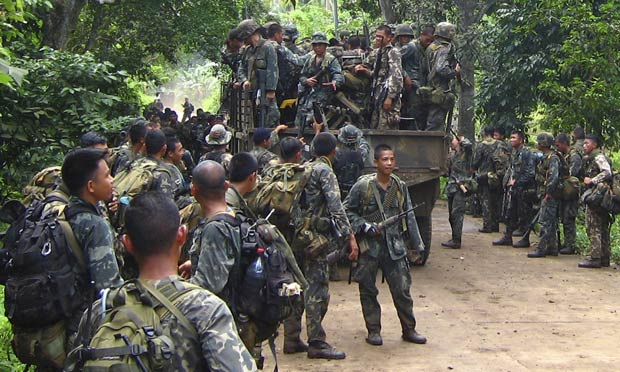
Zamboanga, Philippines: Philippine soldiers clashed with about 200 fighters of a Al Qaida-linked militant group on Thursday, leaving two soldiers and six guerrillas dead, a military spokeswoman said.
The soldiers were on patrol in the strife-torn island of Jolo when they encountered fighters of the Abu Sayyaf group, army spokeswoman Captain Rowena Muyuela said.
“The firefight lasted for two hours resulting in a big number of casualties to the bandits,” she told reporters.
Ten Abu Sayyaf fighters and 15 soldiers were also wounded in the encounter before the militants fled, she added.
The Abu Sayyaf, set up with seed funds from Al Qaida in the early 1990s, has been blamed for many of the deadliest militant attacks in the Philippines, including the 2004 firebombing of a ferry on Manila Bay that claimed more than 100 lives.
A key leader of the group posted video footage of himself and other gunmen last year pledging allegiance to Daesh fighters in Syria and Iraq.
The government has recently mounted major operations against Muslim extremist groups in different parts of the southern Philippines.
A raid by police commandos in January killed Malaysian Zulkifli Abdhir, who is listed on the FBI’s list of “Most Wanted Terrorists”.
Forty-four police commandos were also killed in the operation, embarrassing President Benigno Aquino’s government and casting a shadow on his efforts to forge a peace accord with other mainstream Muslim rebels.
A massive operation from February to March against another Muslim armed group, the Bangsamoro Islamic Freedom Fighters (BIFF), killed 140 militants, the military said. Six soldiers also died.
The BIFF is opposed to the peace talks and its leaders have also pledged allegiance to the Daesh movement.
The largely-Christian Philippines has been struggling for years with various Muslim armed groups seeking independence in the south which they consider their ancestral homeland.











